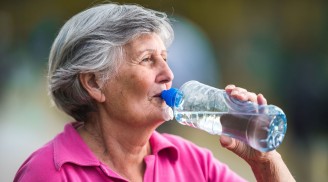Water is essential for our health and well-being, but many older adults do not drink enough of it. Dehydration may cause serious problems such as urinary tract infections, constipation, confusion, and falls. Here are some tips for encouraging hydration in older adults, getting older adults to drink more water.
Make water more accessible and appealing
Keep a pitcher of water in the fridge or on the counter, and offer a glass of water with every meal and snack. You can also add flavor to water with lemon, cucumber, mint, or berries.
Monitor the color and amount of urine
A pale yellow or clear urine indicates adequate hydration, while a dark yellow or brown urine indicates dehydration. Encourage older adults to check their urine color and drink more water if it is too dark. Also, keep track of how often they go to the bathroom and remind them to drink water if they have not urinated for several hours.
Avoid beverages that can cause dehydration
Some drinks, such as coffee, tea, alcohol, and soda, can have a diuretic effect and make the body lose water. Limit the intake of these drinks and replace them with water or other hydrating fluids, such as milk, juice, or soup.
Check for signs and symptoms of dehydration
When dehydrated, you may experience symptoms like a dry mouth and a persistent feeling of thirst, headache, fatigue, dizziness, and muscle cramps. If you notice these signs or symptoms in an older adult, offer them water immediately and seek medical attention.
Educate older adults about the benefits of drinking water
Many older adults may not realize how important water is for their health and may have misconceptions about it. For example, some may think drinking water will make them gain weight or cause swelling. Explain that water helps regulate body temperature, flush out toxins, lubricate joints, prevent infections, and improve skin health. Also, reassure them that drinking water will not cause any harm and will actually help them feel better and more energetic.
Ensuring that older adults stay hydrated is crucial for their overall health and well-being. Failing to consume enough water can result in health issues like urinary tract infections, constipation, confusion, and falls. By implementing strategies such as making water more accessible and appealing, monitoring urine color and frequency, avoiding dehydrating beverages, checking for signs of dehydration, and educating older adults about the benefits of drinking water, caregivers and loved ones can help increase water intake and prevent these problems. Remember that staying hydrated is a simple yet vital aspect of maintaining good health, and it is essential to prioritize hydration for older adults to enhance performance and ensure a high standard of living.

